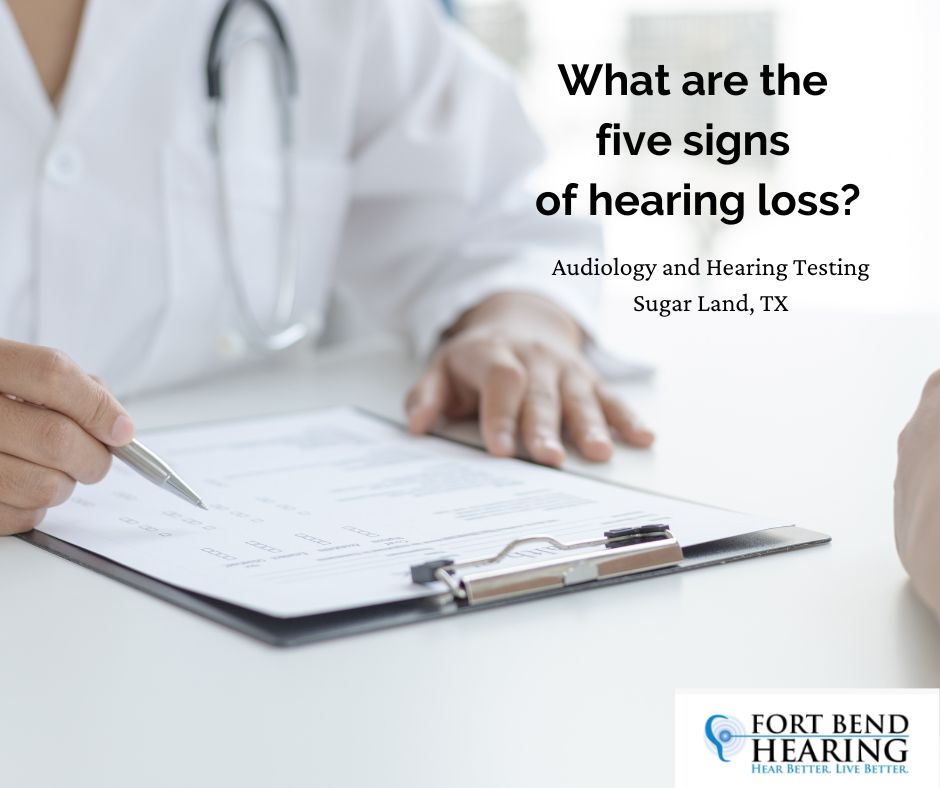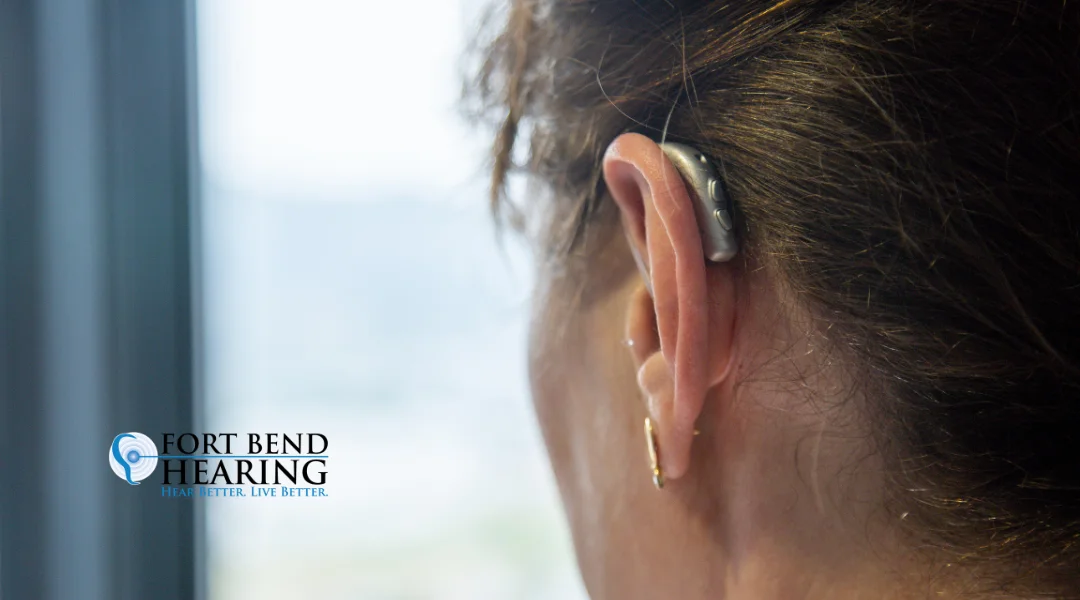Hearing loss can affect anyone, at any stage of life. Some acquire hearing loss at birth (congenital), others develop it after being exposed to extremely loud noises, while others acquire it due to old age. In short, hearing loss may be caused by various factors. You may be wondering – what are the five signs of hearing loss?
Here we discuss the common signs of hearing loss, not including the symptoms that are seen in babies or newborns, since they are considered to be a different case than individuals who develop hearing loss at a later stage in life.
Sign #1: Muffled hearing
You may notice sounds and voices are seeming to be more distant even if the person or source of sound is near you. When this happens, you may need to ask the person you are talking to to repeat what they are saying, or you may need to increase the volume of the TV, radio, or speaker to hear better.
Sign #2: Struggling to keep up with group conversations
Parties, meetings, or concerts involve a lot of people talking at the same time. If you notice that you are having a hard time following the conversation, specifically hearing incoherent blend of sounds instead of words and sentences, you may need to get your hearing tested.
If you suspect a hearing problem, try to assess what kind of sounds you struggle to hear. Do you struggle to hear the voices of children and women? Or do you miss out on low-pitched sounds like the rumble of thunder or a car motor humming? These small details are important because they can help identify the type of hearing loss you are experiencing.

Low-frequency hearing loss
Low-frequency hearing loss makes it harder to hear sounds with a low pitch. Men’s voices are often harder for people with this illness to hear than those of women or young children. Given that vowel sounds are pronounced in a lower pitch than consonant sounds, you might have a particularly hard difficulty telling them apart if you have low-frequency hearing loss.
High-frequency hearing loss
One of the most common types of hearing loss is high-frequency hearing loss. With this condition, hearing high-pitched noises can be challenging. High-frequency hearing loss can affect anyone, regardless of age, but it is more common in elderly persons who have presbycusis (age-related hearing loss) and those who are frequently exposed to loud noises.
Sign #3: Withdrawing from social interactions
People who have hearing problems tend to shy away from social interactions because they are either embarrassed, anxious, or nervous about their gaps in hearing and communication. With the available technology today, this should not be a problem because there are hearing aids and cochlear implants that could help people with hearing loss live a better quality of life.
Sign #4: Listening fatigue
The brain and the ears work hand in hand to pick up and interpret sound. Any gaps in the processing of sound from the ears to the brain will result in gaps in hearing. This is why people with untreated hearing loss may feel tired, cranky, or stressed because the brain is working double time to process information.
Sign #5: Tinnitus
A big percentage of people with hearing loss experience tinnitus, otherwise known as ringing in the ears. This usually occurs when hearing loss is caused by sudden exposure to dangerously loud decibels, such as a gunshot, a bomb explosion, etc.
See an audiologist immediately if you experience sudden hearing loss, especially if only one ear is affected. Sudden hearing loss may also be an indicator of an underlying medical condition that needs to be addressed.
Are you noticing signs of hearing loss?
Worried about your hearing? Ask an audiologist for a professional opinion.
An audiologist can perform a hearing evaluation to identify any problems in your auditory system.
Detecting hearing loss is important because untreated hearing loss has been linked to various health problems, such as dementia, cognitive decline, and mental health issues.
Identifying hearing problems early allows for timely management, reducing the risk of associated health complications.
You don’t have to experience signs of hearing loss to see an audiologist. Regular hearing screenings can also help monitor general ear health and identify any other potential issues.
Audiologists in Sugar Land, TX
At Fort Bend Hearing, your hearing is our priority. We provide comprehensive hearing evaluations and audiology care services in Sugar Land, TX, and nearby areas.
Contact us today to schedule a consultation!


